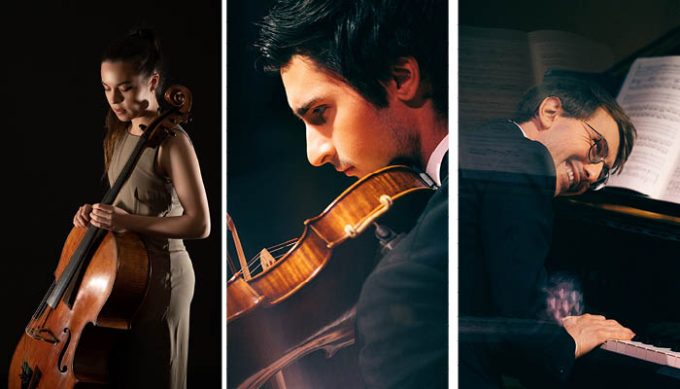A poet to his fingertips, heir to Chopin, whom he shrouded in delicate restraint, Fauré was a master of unheard-of harmonies
of unheard-of harmonies, rich, in Mallarmé's words, in "evocative sorcery". Renaud Capuçon, a loyal partner of the Dijon Opera, brings together his best accomplices for a journey to the heart of his chamber music.
Featuring a balanced duet between violin and piano, Sonata No. 1 is, as if in response to the authority of the Germanic tradition, a veritable manifesto of French chamber music. Influenced by César Franck, Gabriel Pierné and Vincent d'Indy, it offers the elegant portico of its Allegro,
followed by a more nostalgic Andante, a sparkling Scherzo and a Finale in which the two partners, without ever interrupting their dialogue, compete in eloquence. Much later, the Trio Op. 120 was first conceived for clarinet, before Fauré, for reasons of balance, returned to a more classical formation. With its three movements (Allegro ma non troppo, Andantino, Allegro vivo), it is a work of serene clarity, sparing, in which every note seems necessary. Following in the footsteps of Mozart, Schumann and Brahms, Fauré composed two piano quartets. The second, premiered in 1887, is in four movements: an Allegro with a superb unison opening, a syncopated Scherzo, a dreamy Adagio and a frenetic Finale - a rare occurrence for Fauré!
Types
- Music
- Music
- Classical music
- Concert
Date
Friday 28 September

